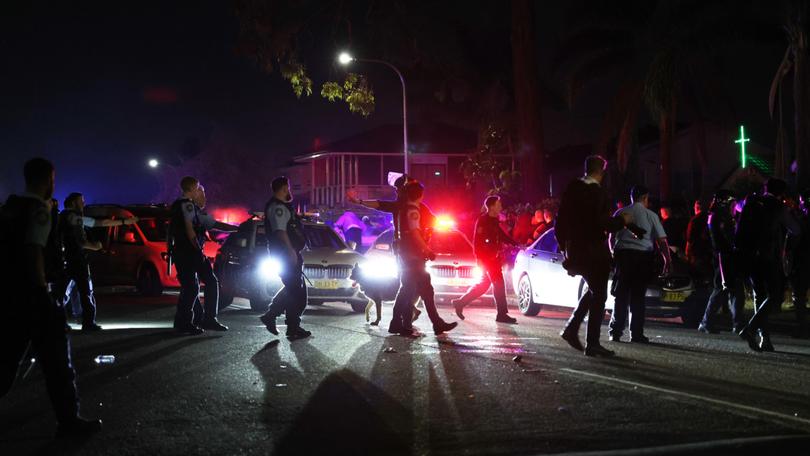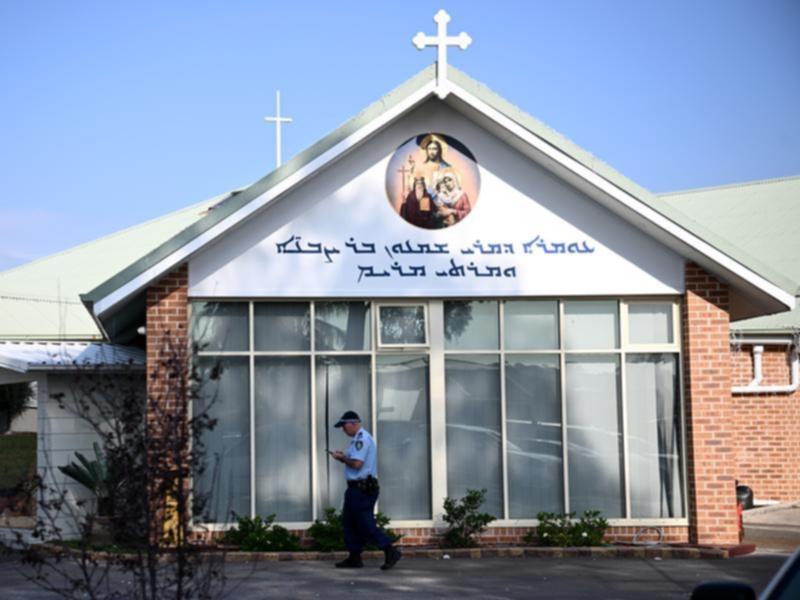EDITORIAL: We know that extremism thrives online . . . we must act to stop it
EDITORIAL: The tragic events of the past five days have obliterated the fiction of safety from terrorism in Australia. The threat is here and it’s very real.

Terror is no longer something that happens far away from us, in other countries, to other people.
The tragic events of the past five days have obliterated that fiction of safety. The threat is here and it’s very real.
While authorities say there is as yet no evidence that the man responsible for the deaths of six people and wounding of many others at Bondi Junction Westfield on Saturday was motivated by ideology, his actions illustrate the chaos and the misery one armed person can cause.
Sign up to The Nightly's newsletters.
Get the first look at the digital newspaper, curated daily stories and breaking headlines delivered to your inbox.
By continuing you agree to our Terms and Privacy Policy.What made the incident so chilling was that the setting was so recognisable. A bustling shopping centre on a Saturday afternoon. It could have been anywhere in the country, and the victims could have been any of us.
Australia was still reeling from that tragedy when we were rocked again by another stabbing. This one, police do believe to be an act of terror.
The alleged perpetrator is a 16-year-old boy, who police say stabbed Orthodox Christian leader Bishop Mar Mari Emmanuel multiple times mid-sermon at his church in Wakeley in Sydney’s west.
Australian youth are not immune to the radicalisation threat that exists online.
While these two incidents may have shocked Australians, they came as no surprise to ASIO chief Mike Burgess, who has dedicated his career to preventing events such as this from occurring.
Mr Burgess has been warning the country since 2022 that if terror did come to our shores, it was more than likely to be via lone wolf attackers, rather than sophisticated terrorist cells.
“When we lowered the terrorism threat level to possible, I said at the time possible does not mean negligible and the most likely attack is an individual that goes to violence with little or no warning with a knife, car or gun,” Mr Burgess said in Canberra on Tuesday morning.
“Sadly we’ve seen that in this case, and our investigation and support of the police continues.”
While not giving in to the terror and the fear those who hate our way of life want us to feel, we must heed the warnings provided to us by Burgess and other security officials.
And we must do more to prevent the tragedies of the past few days going from aberrant to expected.

We know that extremism thrives online. It’s in these shady recesses of the internet that young people in particular are vulnerable to corruption and radicalisation. They can be drawn into the web not just of religious extremism, but racist, misogynistic and nationalistic fanaticism.
The onus may be on tech giants to stop that radicalisation as well as the spreading of hateful doctrines.
Governments too should look at laws governing weapons — from guns to knives and everything in between.
Australia is a peaceful country and Australians are a peace-loving people.
That doesn’t come by accident.
To keep it that way, we must act to defend ourselves from extremism in all its forms.
